
Louise Bourque (born 1963 [1] ) is a Acadian French Canadian experimental filmmaker. [2] [3]

Louise Bourque (born 1963 [1] ) is a Acadian French Canadian experimental filmmaker. [2] [3]
She taught cinema in her native Edmundston and in Boston, Mass. She lives in Montreal after a 25-year absence. She had a relationship with fellow filmmaker Joe Gibbons in the late 1990s before breaking up. [2] [4]
Since 1989, her works involve physical manipulation of emulsion and imprints of memory and trauma using her own home movies and other types of found footage. [5] [6]
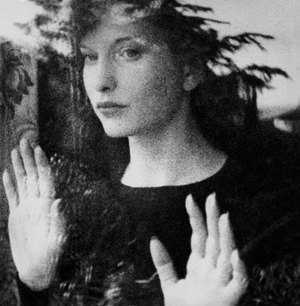
Maya Deren was a Ukrainian-born American experimental filmmaker and important part of the avant-garde in the 1940s and 1950s. Deren was also a choreographer, dancer, film theorist, poet, lecturer, writer, and photographer.
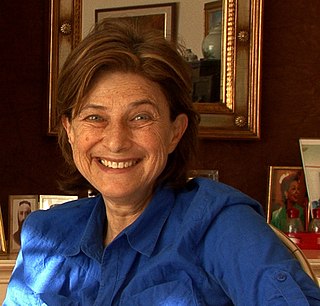
Chantal Anne Akerman was a Belgian film director, screenwriter, artist, and film professor at the City College of New York.
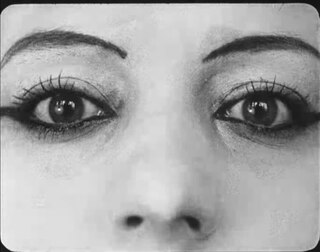
Experimental film or avant-garde cinema is a mode of filmmaking that rigorously re-evaluates cinematic conventions and explores non-narrative forms or alternatives to traditional narratives or methods of working. Many experimental films, particularly early ones, relate to arts in other disciplines: painting, dance, literature and poetry, or arise from research and development of new technical resources.

American Masters is a PBS television series which produces biographies on enduring writers, musicians, visual and performing artists, dramatists, filmmakers, and those who have left an indelible impression on the cultural landscape of the United States. It is produced by WNET in New York City. The show debuted on PBS in 1986.

Barbara Jean Hammer was an American feminist film director, producer, writer, and cinematographer. She is known for being one of the pioneers of the lesbian film genre, and her career spanned over 50 years. Hammer is known for having created experimental films dealing with women's issues such as gender roles, lesbian relationships, coping with aging, and family life. She resided in New York City and Kerhonkson, New York, and taught each summer at the European Graduate School.
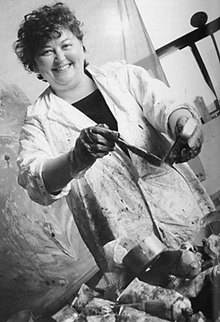
Joyce Wieland was a Canadian experimental filmmaker and mixed media artist. Wieland found success as a painter when she began her career in Toronto in the 1950s. In 1962, Wieland moved to New York City and expanded her career as an artist by including new materials and mixed media work. During that time, she also rose to prominence as an experimental filmmaker and soon, institutions such as the Museum of Modern Art in New York were showing her films. In 1971, Wieland's True Patriot Love exhibition was the first solo exhibition by a living Canadian female artist at the National Gallery of Canada. In 1982, Wieland received the honour of an Officer of the Order of Canada and in 1987, she was awarded the Toronto Arts Foundation's Visual Arts Award. She was also a member of the Royal Canadian Academy of Arts.

Victorine-Louise Meurent was a French painter and a model for painters. Although she is best known as the favorite model of Édouard Manet, she was an artist in her own right who regularly exhibited at the prestigious Paris Salon. In 1876, her paintings were selected for inclusion at the Salon's juried exhibition, when Manet's work was not.

Shirley Clarke was an American filmmaker.

Gwendolyn Audrey Foster is an experimental filmmaker, artist and author. She is Willa Cather Professor Emerita in Film Studies. Her work has focused on gender, race, ecofeminism, queer sexuality, eco-theory, and class studies. From 1999 through the end of 2014, she was co-editor along with Wheeler Winston Dixon of the Quarterly Review of Film and Video. In 2016, she was named Willa Cather Endowed Professor of English at the University of Nebraska at Lincoln and took early retirement in 2020.
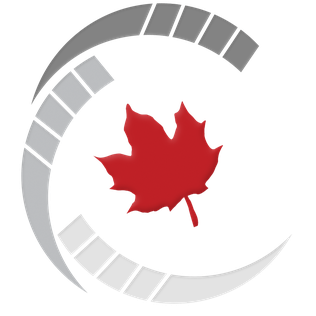
The Canadian Film Institute (CFI) (French: Institut canadien du film (ICF)) Canadian Film Institute involves Canada in the film production, study, appreciation process of film/moving images for cultural and educational purposes. The Canadian Film Institute organizes ongoing public film programming and artist talks, provides educational enhancements on its websites, distributes a small collection of films, and is involved in the publication of books and monographs on various aspects of Canadian cinema. CFI screenings and events are held in Ottawa Ontario, mainly at The Auditorium at 395 Wellington St. (formerly operated by Library and Archives Canada).
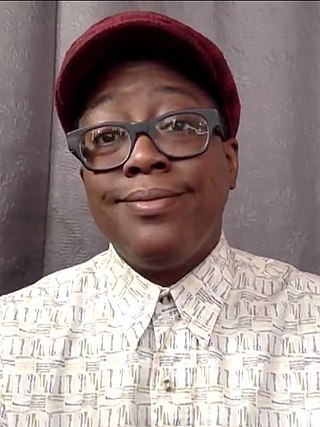
Cheryl Dunye is a Liberian-American film director, producer, screenwriter, editor and actress. Dunye's work often concerns themes of race, sexuality, and gender, particularly issues relating to black lesbians. She is known as the first out black lesbian to ever direct a feature film with her 1996 film The Watermelon Woman. She runs the production company Jingletown Films based in Oakland, California.
Peggy Ahwesh is an American experimental filmmaker and video artist. She received her B.F.A. at Antioch College. A bricoleur who has created both narrative works and documentaries, some projects are scripted and others incorporate improvised performance. She makes use of sync sound, found footage, digital animation, and Pixelvision video. Her work is primarily an investigation of cultural identity and the role of the subject in various genres. Her interests include genre; women, sexuality and feminism; reenactment; and artists' books. Her works have been shown worldwide, including in San Francisco, New York, Barcelona, London, Toronto, Rotterdam, and Créteil, France. Starting in 1990, she has taught at Bard College as a Professor of Film and Electronic Arts. Her teaching interests include: experimental media, history of the non-fiction film, and women in film.
The Images Festival is a yearly event devoted to independent and experimental film, video art, new media and media installation that takes place each spring in Toronto.
Celine Parreñas Shimizu is a filmmaker and film scholar. She is well known for her work on race, sexuality and representations. She is currently Dean of the Arts Division at the University of California at Santa Cruz.
Aerlyn Weissman is a two-time Genie Award-winning Canadian documentary filmmaker and political activist on behalf of the lesbian community.
Riddles of the Sphinx is a 1977 British experimental drama film written, directed and produced by Laura Mulvey and Peter Wollen and starring Dinah Stabb, Merdelle Jordine and Riannon Tise.
Friedl Kubelka is an Austrian photographer, filmmaker and visual artist born in London, England in 1946. Her photographic practice has been attributed to a 20th-century movement known as Feminist Actionism or Viennese Actionism. Kubelka's photographic works sometimes focus on accentuating temporality, seriality and the body.
Gwen Haworth is a Canadian transgender filmmaker, editor, social worker and instructor, known for her experimental documentaries She's a Boy I Knew (2007) and A Woman With a Past (2014). Haworth is also an advocate for transgender health issues and was chosen in 2014 as one of Vancouver's 12 Remarkable Women at a ceremony on March 8 for International Women's Day.
Interview is a 1979 Canadian short live-action animated documentary film directed by Caroline Leaf and Veronika Soul, produced by David Verrall. The film is a record of a working day in the lives of two women filmmakers, sometimes described as "an autobiographical collaboration", though both filmmakers are discussing the other woman. The film is also seen as a study of female friendship, the women relating their perceptions of each other through their respective animation techniques, "each creating a visual portrait of the other based on characteristic gestures and impressions."

Louise Liliefeldt is a Canadian artist primarily working in performance and painting. She was born in South Africa and currently lives and works in Toronto, Canada. Liliefeldt’s artistic practice draws directly from her lived experience and is apparent in the use of symbol, colour and material in her work. Other influences include Italian, Latin and Eastern European horror films, surrealism and African cinema. Taken as a whole, Liliefeldt’s work is an embodied investigation of the culture and politics of identity, as influenced by collective issues such as gender, race and class. Her performance work has developed through many prolific and specific periods.
Other female Canadian collage filmmakers similar in content: